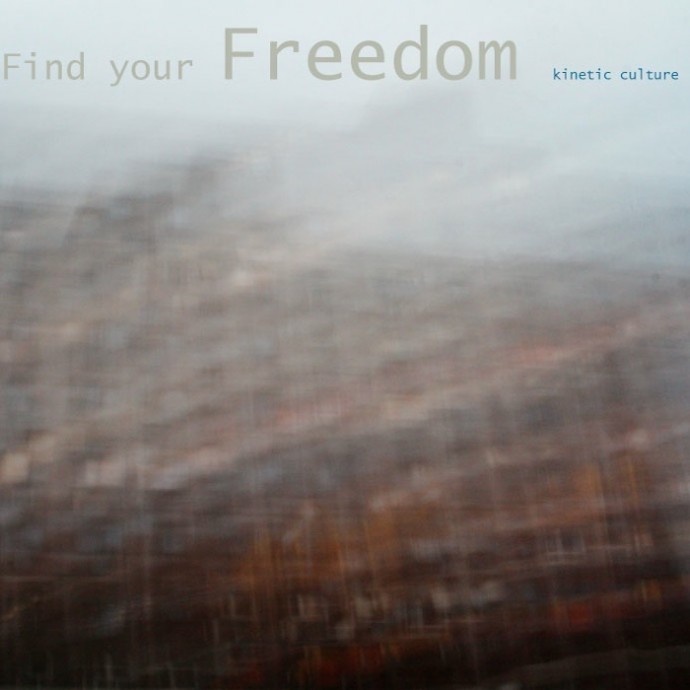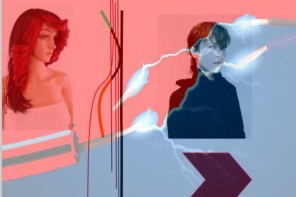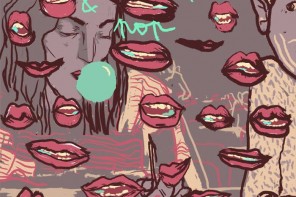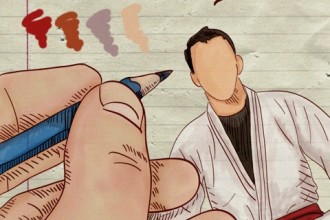It began the early 90s- the golden age of the rave. Amidst post-Thatcher government destruction and the arrival of acid-house music, a collective called Spiral Tribe exploded onto the dreary British landscape. Spiral Tribe were a huge influence on DIY culture, particularly the Free Party movement, which promotes good feelings, freedom and unity amongst participants from all walks of life, alongside the powerfully transformative electronic dance beat. Non-commercial parties and multi-riggers known as ‘teknivals’ were held in disused warehouses or out in countryside and the energy began spreading through Europe and beyond.
Stray Wayward aka Spiral Mark, visionary and initial member of the tribe, shares his account of police repression and his insight to the conflicting ideals between authorities and creative individuals.
We started up just at the right moment, during the outrage towards the destructive consequences of Thatcher’s government policies. We were completely naïve, not knowing what we were going to do but we were a bunch of creative people and were well-positioned to make flyers, backdrops, squat buildings, be DJs and quite quickly began to make our own music as well.
I’m still in the process of writing a book called, ‘A Darker Electricity,’ covering a period of 5 years; from the very beginning till right up through to our court case (Castlemorton Common Festival) with the UK authorities. As time went on and we gained a little more popularity and things got a bit out of hand, there we were, out in the UK wilderness continuing the ‘free festival’ thing. Obviously, we drew the attention of the authorities because, as it turned out, there had been a systematic clamp-down throughout the previous 10 years to stop the free-gathering, free celebration and coming together to freely exchange ideas. It’s a capitalist notion that they can extend the ‘Enclosures Act,’ and destroy the commons so there are no places where anyone can go and do their thing. Nowhere to have a free flow of information or just dance all night together without them having some sort of influence or even metering it. Back then, 20 years ago, all those monolithic bureaucracies were really slow and sluggish. It was all pirate radio, raves in warehouses, white labels and people were making it up as they went along. It was a very DIY culture and all fast; the music was all electronic and fast, the drugs were fast and so on.
So there was a sense that we were the gap between the oppressor and the new generation which widened to such an extent that they would never catch us. They’d never see us again, we were off, over on the horizon and they had no idea. Of course, with the digitalisation of everything so that the filing systems became cheaper, they slowly caught up and I think we are in the closing moments now where we have to be careful. If you actually look at the history, which I have done, there was serious tightening up of legislation leading to us getting roped into the Castlemorton Common case in 1992. It was cited as the biggest illegal rave ever held in the UK. They used us as scapegoats to bring in the new legislation and to say there actually was a problem (which is debateable). We won that case and it was fine. We were in the court for 3 months and were the longest trial in the UK in history by this time and the first time in history afterwards, when they brought in the legislation anyway, that any parliament had actually brought in an act to outlaw a particular style of music. Absolutely shocking stuff went on and there was a media black-out when it was happening, of course. Not many people know the story or have it in context and connect it with the previous years. I think once people know what that history is, they can then see there is a kind of creeping thing that’s undermining our relationships with each other and our community bonds; it’s breaking those bonds.
It’s all very well that you can go to clubs and socialise but it’s all metered. There’s a similar thing happening now where you can go on the internet and have that free interaction, but it is still data-mining all your personal information and re-selling it. There’s always someone making money. You can get quite used to these moments of openness and freedom; you’ll go into it like we did back then, and think that this is always what it’s going to be like. We’ve opened up a gap between us and them.
There’s an interesting metaphor for this: I live in a very rural area and I’m friendly with a local farmer. He just got a new bull and warned me it was a bit feisty and put it in the field with the footpath across it. I said, “Isn’t this a little bit dangerous?” He replied, “It depends how fast you are.” It’s absolutely true and I think this is what it’s always been about. If you can do things quick enough- yes we are all being monitored, but if you can be just one second faster, you will always have that little buffer zone.
I feel that creative people are at the cutting edge and the people who want to control and profit from it, are right behind. I think they are closing in more, maybe 20 years ago they were 10 seconds behind and they became maybe 2 seconds behind so we have to find new ways to extend that gap again. It’s sure to happen in some way or another, ‘open-source’ is interesting in the way it undermines that oppressive control that they have been trying to enforce.
Is there potential that they will actually catch up? Never. There is a distinct lack of imagination on their part but for many creative people, the only work they can get is to work for them. So you get situations like in Berlin, where everyone is an artist and everyone’s broke so no one can sell anything. The only real option is to work for advertising or something and you can get on in life if you perpetuate this reality template. I think that’s shifted and I feel that people are a little savvy now. Maybe I’m just an eternal optimist but with social networking, we have introduced another gap between us and the bull chasing us across the common.
When you’re doing something creative and you’re taking and occupying a space, no questions asked- you don’t justify yourself, and everything within that space is something you and everyone present has created or participated in, that is much more real than any artificial construct enforced by any regime. The regimes in existence before we are born – any of us, we’re born into this- by the time you actually realise it’s a construct that someone is profiting from your labour, it’s all a bit too late because your synapses have been burnt to a degree. It’s a bit tricky, it’s like, “Hang on, this is a bit strange. What are they all up to?” It takes your teenage years to get into rebellion because there’s a strange thing with time where your parents come ahead of you and you are born into a generation ideal that is already in the past. You have a default future laid out before you. All great dynasties realised this and use a very clumsy, simple trick; you build a load of monuments that look like they’ve been around for years and make it all very pretty so everyone loves it and you have statues and stately homes celebrating your dynasty and everyone thinks, ‘Well, that’s just the way it is.’ People are reluctant to disrupt it because there’s a certain stability that comes with it.
I think there is an opening in communication, a heightening of education and intelligence, even if it is actually coming from the state. In a way, that is not nearly as bad as the privatisation that is taking place; of military and security forces and with business systems. If they manage to put black boxes all over the internet, then we’re fucked. We’ll really be heading into that Prison Planet scenario that could be just around the corner. A lot of people see that too. Changes are interspersed in fits and starts, but again, I am optimistic. I think it’s a slow process but it’s our very nature that we operate freely and it is impossible to go against that nature indefinitely.







